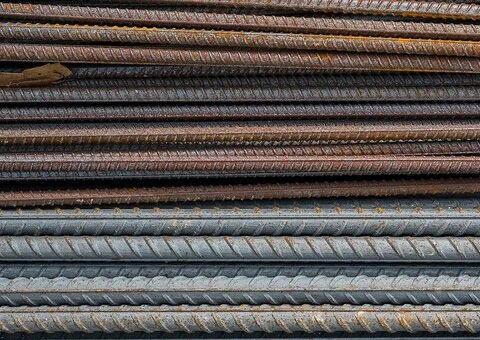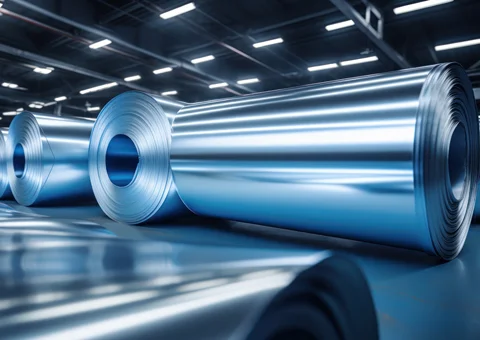In July 2025, the global rebar market showed mixed trends: prices in China rose sharply amid expectations of stimulus measures, remained stable in the US, and showed weak dynamics in Europe and Turkey. Despite local attempts to raise prices, the overall situation remained unstable due to sluggish demand, seasonal factors, geopolitical tensions, and fiscal factors.
Turkey
The Turkish rebar market showed slight price fluctuations amid low activity both domestically and in key export destinations. Between June 27 and July 25, rebar prices rose by only 0.1% to $540/t FOB, while in the middle of the month prices fell to $520/t.
The main factor putting pressure on prices was sluggish global and domestic demand. In particular, demand in the EU was subdued due to Turkish quotas for the third quarter being exceeded, which led to average import duties of 12-13%. Seasonal factors, including summer vacations and instability due to the geopolitical situation in the Middle East, also had an impact.
Against the backdrop of oversupply, Turkish producers were forced to lower prices to maintain sales volumes. In the middle of the month, offers for rebar reached $525/t FOB, and in some regions of the domestic market, even below $520/t ex-works.
At the same time, at the end of July, some mills, including Kardemir, attempted to raise prices, citing the recovery of quotations in China and the stabilization of scrap prices. Export offers rose to $545-550/t FOB, but demand remained weak, and some traders considered these levels to be excessive.
Despite local sales to Palestine, the Balkans, and Ethiopia, the total volume of export deals was limited. The domestic market also showed no signs of activity even after the Turkish Central Bank lowered its discount rate, as access to credit remained difficult.
As a result, July proved to be an unstable and marginally vulnerable month for Turkish rebar producers. Without a noticeable recovery in demand, there is a risk of further downward adjustments in quotations.
EU
The European rebar market showed mixed dynamics during the period amid low construction activity, oversupply, and seasonal slowdown. In Northern Europe, prices continued to fall, down 3.6% to €610/t ex-works, while in Italy they rose 5% to €525/t ex-works.
In Germany and Austria, prices gradually declined over the month. As of the third decade of July, base quotations fell to €350/t, which, taking into account the size of the surcharges, gave an effective price of around €615/t delivered. This situation was caused by fierce competition among rebar producers for orders amid low construction activity.
The French market remained stable amid weak demand and summer vacations. Sales prices for rebar remained at around €630/t delivered, but in the southern regions, pressure was created by competition from cheaper Italian and Spanish suppliers.
In Italy, however, the situation was the opposite. After a prolonged decline in prices in May-June, local producers initiated an increase, citing reduced inventories, limited rebar supply, and rising production costs. By the end of the month, sales prices reached €510-540/t. Demand picked up partly due to purchases ahead of the August production shutdowns.
As a result, the EU market was divided: northern regions showed a decline in quotations due to weak demand and competition, while the south, primarily Italy, saw a local recovery in prices amid declining supply and preparations for the holidays.
USA
The US rebar market remained stable in July after prices rose by 8.5% in June, staying at $915/t. Spot prices for rebar remained unchanged throughout the month despite several attempts by producers to raise prices.
Prices were supported by previous June increases ($60/t), but limited demand amid high interest rates and sluggish construction activity held back further growth. Producers cited limited supplies and potential import shortages due to new tariffs and anti-dumping investigations into imported rebar from Algeria, Vietnam, Egypt, and Bulgaria.
Importers did not lower their prices, expecting domestic producers to continue raising their quotations, citing limited supply and rising costs. At the end of the month, Nucor announced a 10% increase in prices for manufactured rebar, citing strong demand and an expected upturn in construction activity.
Overall, the market remained subdued and volatile due to geopolitical and trade uncertainty, as well as the lack of clear signals for interest rate cuts.
China
The Chinese rebar market has shown significant growth since the beginning of July, with prices rising 10.6% to $459.7/t FOT Warehouse. Prices began to rise at the beginning of the month amid speculation about production restrictions and expectations of new macroeconomic stimulus measures. Despite the construction industry being in a season of low activity due to rain and heat, the rise in spot and futures prices improved market sentiment.
In the middle of the month, activity intensified due to rumors of a possible Central Conference on Urban Development, which historically preceded large-scale reforms in the real estate sector. This prompted players to intensify trading, despite the weak recovery in real demand. At the same time, large producers raised their product prices, supporting optimism.
By the end of the month, the market experienced a new wave of growth, with prices in Shanghai soaring to $460/t. This was due to signals about policies to curb overproduction and stimulate demand. Additional momentum came from the news of the launch of a hydropower project on the Yarlung Tsangpo River, which boosted infrastructure demand. At the same time, rising raw material prices forced steel mills to revise their offers upward.
The market was supported by limited supplies and a reduction in rebar inventories. However, market participants remain cautious, awaiting real improvement from the construction sector.
Courtesy : https://gmk.center/

